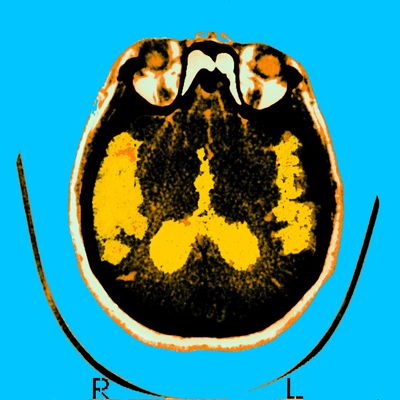
Alzheimer’s is an old person’s disease. This is how most of us think about it, anyway, and it’s also how those who study the disease have long thought of it: To understand Alzheimer’s, so the theory has long gone, scientists must focus their research on aging brains. That’s when the memory-destroying proteins seem to show up, after all. But, as the Wall Street Journal reports, there’s a newer theory about Alzheimer’s that some scientists are — cautiously — beginning to get excited about. Maybe it’s really a developmental condition, one that begins to take root in early childhood.
In a study published online in the journal Neurology on Wednesday, a team of neuroscientists from across the country found structural differences in the brains of people who were at genetic risk of developing Alzheimer’s. Among their findings: Those who had a gene that predisposed them to a higher risk of inheriting the disease also were more likely to have a smaller-than-normal hippocampus, a region of the brain that contributes to the preservation of memories. More than 1,100 young people took part in this study — the oldest participants were 20, and the youngest only 3.
That suggests that by preschool, early signs of Alzheimer’s may already be present in the brains of those with a genetic predisposition for the disease. And if this theory turns out to be true, it could help explain why the current drugs available to treat the disease don’t actually work very well. It’s early still, and the researchers quoted in the WSJ piece caution that much more research is needed before this Alzheimer’s-as-developmental-disorder theory can be considered anything more than an intriguing hypothesis. Even so, it is intriguing indeed.




